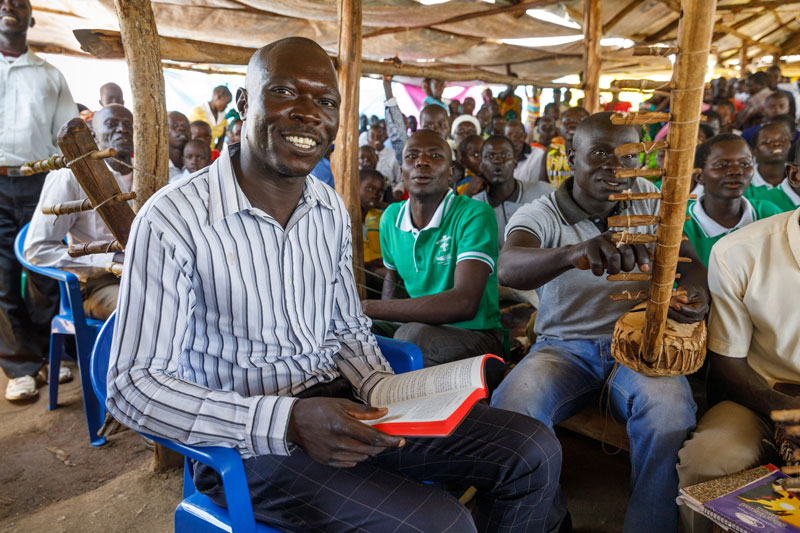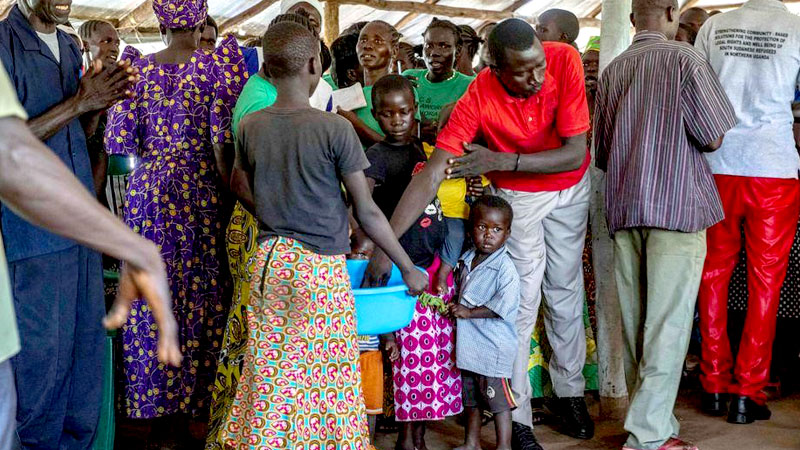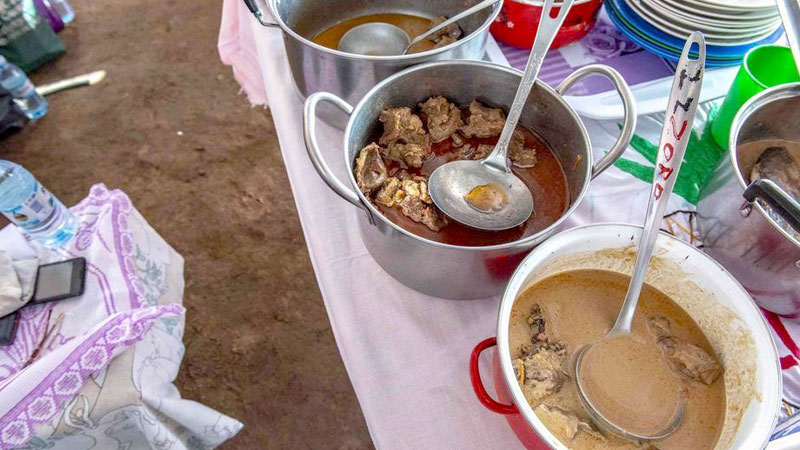If I Had Something to Give
The generous lifestyle of a refugee community.

The service is packed.
Men, women and children — well over 100 people — are sitting in plastic patio chairs and on long wood beams in an open-sided tent made of plastic tarps and branches. More people look in at every opening. And around the circumference, a larger crowd is seated under any shade available.
For the Keliko people of South Sudan, displaced to Ugandan refugee settlements, church is a joyful gathering of believers.
The newly translated Keliko New Testament is read, prayers are uttered, announcements made, sermons given and worship exuberantly led by the youth and accompanied by spontaneous dance. And of course, like most churches around the world, this church takes an offering.
But what exactly do people living in this refugee settlement give to the Lord?
Everything.
When the offering begins, worship and dancing resume. People get out of their seats and dance to the front of the church. They’re smiling as they sing, and cheerfully put whatever they can into a wide, bowl-shaped basket held by a child.

According to translator Bishop Seme Nigo Abiuda, everyone in the church desires to give something: Many sell portions of their food rations or take small jobs in the host community in order to give back to the Lord.
Some who have no way to make money still come forward in the same fashion: dancing, singing and smiling. But then they do something unexpectedly beautiful — they joyfully bend toward the offering basket, stretching their empty hands into it. It’s a simple but sacred gesture that can’t be overlooked.
Even deeper than that, their actions demonstrate a life that is all in for the Kingdom of God. Generosity among the Keliko believers doesn’t end with a church service. They live out a culture of hospitality for guests and each other.
After church, resources are pooled and willing hands join together to provide a community-wide picnic — a love feast resembling the fellowship of the early believers in Acts 2:42-47.
“The Keliko people are loving people. And also they are welcoming people,” said Bishop Seme. “Whenever any person comes to their land, they welcome them with a lot of joy. And whatever little they have, they share it with people.”

Whether at tea during a literacy class or a large gathering, the Keliko spread out table covers and set meals out with care. There are moments that you feel, as they’re making the best of whatever food is available, that there’s a very special guest in attendance. And there is.
The King of kings is there among them.
Are there ways you can live out this kind of generosity in your own life? You can demonstrate hospitality like the Keliko when you help a friend with an act of service, sit with a lonely nursing home resident or clean toilets at church. When it’s sacrificial — especially when it hurts — giving of yourself is a reflection of Jesus, who loved us and gave himself up for us (Ephesians 5:2).
Imagine what could happen in our lives and those around us if we choose to say, “Lord, what I have is yours. What should I give today?”
Let’s be like the Keliko. Let’s live generously with joy!






